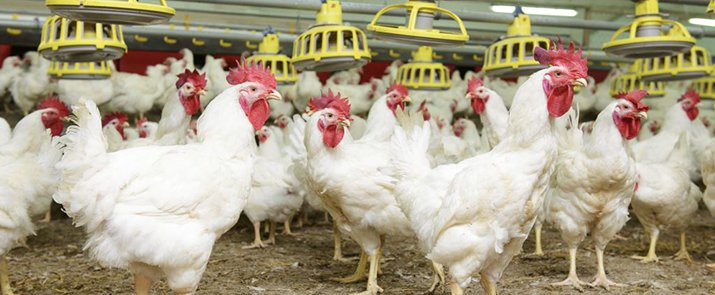For seven years, between 2000 and 2006, Emanuelle Mercado left the Chicago loop office highhigh-rise having a knot in the stomach. However the stress of his day wasn’t usual for what the majority of us experience at the office. After analyzing numerous claims from clients available chicken industry, the pictures and words describing these terrible cases made indelible scar on his psyche.

Mercado breathes many sighs of relief because he recounts this a part of his existence being an insurer for factory farms. Finally, he’s free of a feeling of dread that permeated his existence at the moment and free from his confidentiality agreement that promised him to secrecy. While the organization he labored for shall remain anonymous, the harrowing story of his unusual contact with this largely unseen world follows.
The insurer that Mercado labored for specialised in high-risk and hazard coverage. In a certain point, the firm started to build up chicken farm clients. Most of them were subsidiaries from the world’s largest chicken corporations, Tyson and Purdue. Plus they were needed to follow along with these corporation’s strict operational guidelines. Just before his resignation, his employer had accrued some 3,000 chicken farm clients.
To “qualify” a possible client, Mercado would ask lots of questions regarding the circumstances to which chickens were elevated in their facilities, like the construction from the housing and the amount of wild birds per square ft. In some instances, wild birds were provided only 3/4 feet per bird. And often wild birds spent all of their short resides in candle lit warehouses with serious quality of air problems.
The underwriting process for verifying and fact-checking what these clients reported to him were contracted out to what’s known in the market as “loss control services,” hired through the insurer to visit onsite towards the chicken facilities and inspect them. Loss control provide detailed reports (with photos), narratives, and checklists supplying the underwriter all the details required to measure the business.
In some instances loss control was requested to consider air samples miles or more from the farms and “use their nose” to find out when there were indications of ammonia odor from that distance. The amount of ammonia in mid-air out of this distance was an earlier indicator from the conditions to which the wild birds on these farms were housed. High amounts of ammonia accumulating from fecal dust in mid-air within an around these facilities meant greater risk for that insurer. Bronchial bronchial asthma along with other frequently fatal respiratory system infections affect chickens uncovered to high amounts of ammonia. Workers also begin to develop similar signs and symptoms. Chickens are customarily administered high doses of antibiotic to battle off illnesses caused by adverse quality of air.
Mercado saw lots of claims is available in from all of these farms. One particular claim described the collapse from the roof of the facility housing 15,000 wild birds throughout a wind storm. All the wild birds were trapped inside throughout the incident and died a frightful dying. Many claims declared mass losses of wild birds because of illness and were supported by photos of live and dead wild birds discussing exactly the same cages in addition to huge mounds of dead wild birds. Another claim describes losing chickens attacked and wiped out by rats which had invaded the coop.
“If they were humans rather of chickens,” states Mercado, “people would refer to this as genocide or worse. I had been in awe how people could treat creatures by doing this.”
Throughout his seven years at work, Mercado saw many of these farms get their policies ended, their facilities shut lower by regulators and law suit taken against them for violating clean water and air laws and regulations.
When requested by what finally motivated him to depart after seven years, Mercado explains: “I remember returning home every now and then feeling beaten and that i started hating my job. I recognized I couldn’t get it done any longer.”
Because of this experience, Mercado adopted a vegan lifestyle and diet and created a strong feeling of empathy of these intelligent and sentient wild birds in addition to all creatures. He continues his career within the commercial insurance at Oklahoma industry today.
Comments are closed here.
